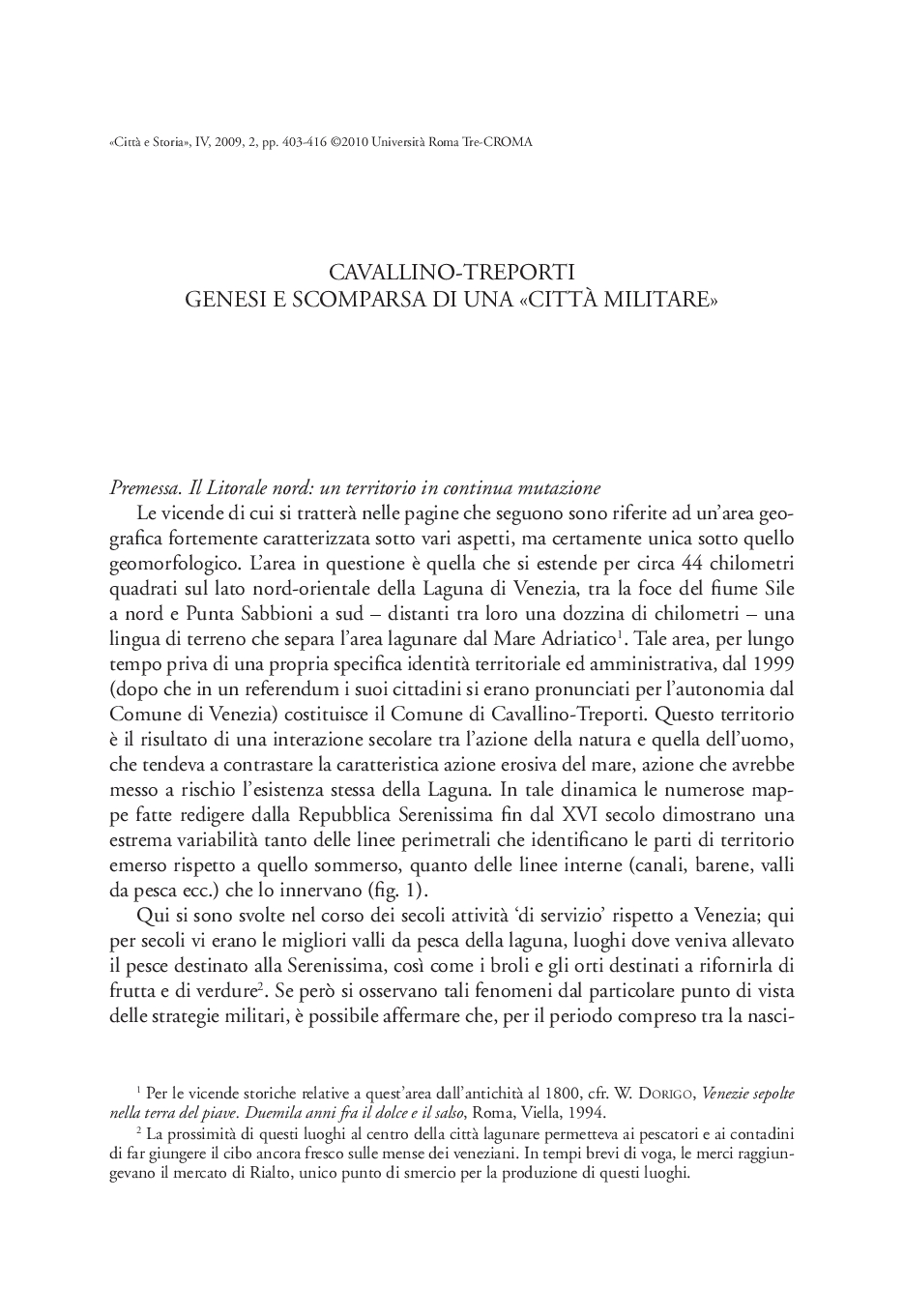Indice degli autori
CITTÀ & STORIA » 2009/2 » Spazi e cultura militare nella città dell'Ottocento
ISSN 1828-6364
Pretelli Marco
Cavallino-Treporti. Genesi e scomparsa di una «città militare»
pp.403-416, DOI 10.17426/62333
Articoli
Abstract: Between 1850 and 1940, in a land that for centuries had been a tongue of emerged land dedicated to agriculture and fishing on the upper board of Venice lagoon, a large number of fortifications had been built.
At the same time with the moving of the boundary between empires in the Venician quadrant, Italy and Austro-Hungaric empire, Venice has been reinforced with a defensive system that occupies the land between the lagoon and the sea, nowadays the Peninsula of Cavallino-Treporti.
Nineteen century fortifications, coastal batteries for cannons, mortars, howitzers were built in a short time, transforming this territory in a catalogue of the military architecture of that restless age. A narrow-gauge railway, telemetric towers and barracks still today mark this area. During the Second World War a new fortification will appear on this stage; less sophisticated and interesting of the previous built defences: the antiaircraft battery.
With the end of the Second World War this enormous built legacy will lose its importance; the fortifications will be emptied, batteries will be abandoned, the railway will be, in a large part, dismantled.
In less than a-hundred years the military city will born, live and disappear, leaving just some relicts, landed on the beaches of Cavallino-Treporti.

Referenze
- download: n.d.
- Url: http://archivio.centroricercheroma.it/?contenuto=indice-degli-autori&idarticolo=902
- DOI: 10.17426/62333
- citazione: M. Pretelli, Cavallino-Treporti. Genesi e scomparsa di una «città militare», "Città & Storia", IV/2, pp.403-416, DOI: 10.17426/62333

